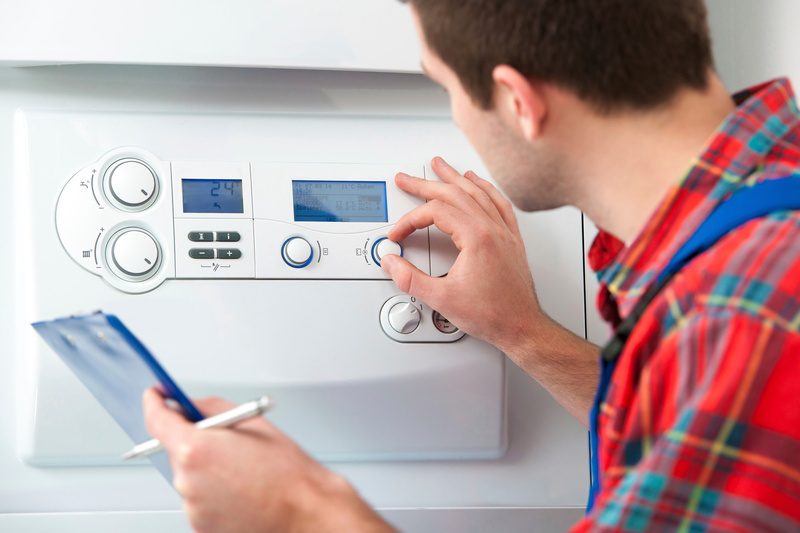Need Help Choosing a Water Heater? Start Here.
If your home uses a conventional water heater, then chances are you know what it’s like to take a cold shower. However, what if we told you that there’s no need ever to fear running out of hot water again?
If your shower temperature switches from scalding hot to subfreezing during the course of a shower, then it simply isn’t cut out for your lifestyle. That means it’s time to kick it to the curb and look for something better. The only problem is, where do you start. The world of water heaters isn’t as simple as you might think. There are different form factors, power sources, and other features to consider when choosing a system, more than you could possibly imagine.
Thankfully, the expert plumbers of Priority Plumbing and Heating are here to guide you through the nonsense and help you find the water heater that best fits your needs.
With proper care and maintenance, new water heaters can deliver reliable service for a decade or more, which means that once you have your new one, you’ll be set for years to come.
Choose A System That Meets Your Needs
When choosing a new water heater, the first thing to consider is its capacity for producing hot water. If you’re only heating water for a single person, yourself, then you may be better off using nothing but the sun’s glorious rays to warm your bathwater(no, seriously). However, families of 6 or more will need a water heater to provide copious amounts of on-demand hot water.
Before selecting a water heater, you will need to determine the amount of hot water your family uses. Take the total number of people living in your residence and add 1 to that number. Then take that sum and multiply it by 12. The result is the first-hour rating. This number is the amount of hot water in gallons that a water heater should be able to make during the first hour that a faucet is open.
A tankless(or on-demand) water heater is rated based on the gallons per minute (GPM) that flow from a single faucet. Determine the number of hot water faucets that typically operate simultaneously in your household, and multiply this number by three, the average GPM flow rate of a tap. The result is the heating capacity rating of a tankless unit.
With these few pieces of advice in mind, you should be able to tell if a water heater can meet the needs of your household.
Pick the Water Heater That Fits Your Unique Style
When it comes to water heaters, there are conventional ones, tankless ones, heaters that use solar energy, heaters that re-purpose your home’s heat to warm water, and even some that draw heat from elsewhere to do their job(more on that later). No matter how they do it, all heaters still only have one job, they take water and heat it so that you can soak in a bubble bath without catching hypothermia.
Unless you’re in a unique situation, chances are you will either want to install a conventional or tankless water heater. The former uses fire or an electric coil to heat a massive water tank. The latter does the same, except it does it without the tank.
Conventional, or traditional, water heaters come with a large tank that stores heated water, which requires ample space. Gas models also need additional space for air to circulate around the burner unit. Overall, these models are fairly reliable until they inevitably run out of water. Plus, the operating costs of one are much higher than a tankless one.
If you do not have the space to install a traditional model, a tankless water heater is your best bet. This appliance requires less space because it does not store water. Tankless heaters warm water only when a hot water faucet is open. Although more expensive than standard water heaters, tankless units are more energy efficient as they do not continually heat and reheat water in a storage tank.
Customize Your Water Heater’s Power Source!
Whether you select a water heater with a storage tank or a tankless unit, you will have to decide what energy source it will use to heat the water. Both water heaters can run on electricity, propane, or natural gas. Still, some may be able to run on more, ahem, exotic energy sources.
Solar water heaters, for example, circulate water through sun-warmed pipes before returning it into your home. On the other hand, specific heat pump models can use the constant heat of geothermal energy to heat your water!
Unfortunately, these more eco-friendly(and much cooler) power sources are only available to a select few people. The rest of us have can only pick from what is available to us as public utilities.
Pick Your Ideal Water Heater Today
Once you know how much water you use, which water heater best serves your needs, and whether or not you can run yours on volcano power, it’s time to choose a heater. If you’re still unsure which make and model is best for you, call Priority Plumbing and Heating at (720) 636-8759 and get the best advice from professionals.
Alternatively, if you live in the Denver area, you could give our friends at Done Plumbing & Heating a call for help with your leaks. Done’s the authority when it comes to Aurora leak detection & repair, and they can help you find a solution for all of your leaks.

